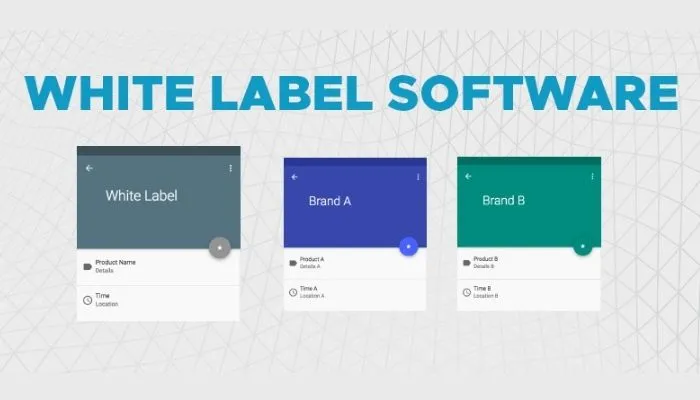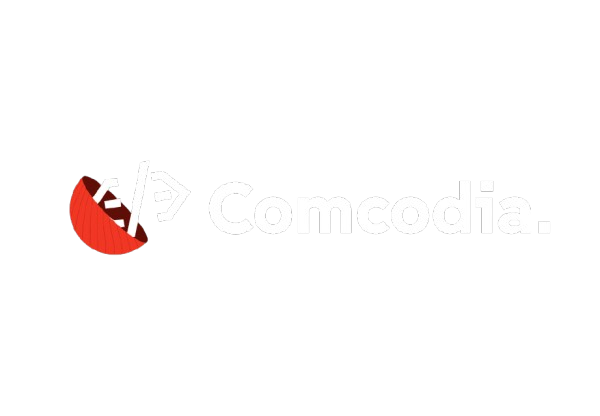Traditional software development can be both costly and time-consuming, often riddled with challenges from start to finish. White label software offers a powerful alternative, enabling businesses to broaden their offerings and remain competitive without the need for hefty budgets or internal development teams. Instead of building from scratch, companies can customize and brand pre-built software solutions to meet their specific needs.
Many organizations have great ideas for digital products but lack the capital for full-scale development. White label software development provides an affordable path to realization, while still offering flexibility to scale when necessary.
With tailored branding, end users won’t realize another company created the software. This elevates your brand’s credibility and market presence. Still, there are clear pros and cons to consider when exploring white label software development services, along with best practices for implementation.
9 Pros of Using White Label Software Development

Pro #1: It’s Scalable
When creating a new software solution, scalability is always a concern. White label software is built with expansion in mind, allowing you to start with core features and add more as needed.
Whether you’re building a white label SaaS for electronic health records or a custom CRM tool, a skilled white label partner can provide a scalable foundation without escalating your development expenses.
Additionally, low-code and no-code platforms make white label apps even more adaptable, enabling fast customizations without deep technical intervention.
Pro #2: Faster Time to Market
Speed is crucial in today’s market. With white label development, you skip the drawn-out stages of traditional development. A white label provider like Comcodia ensures your product gets to market faster by eliminating delays associated with hiring, onboarding, or knowledge transfer.
Their dedicated teams are experienced and prepared, minimizing delays caused by turnover or gaps in technical skill.
Pro #3: Lower Risk
In-house development always carries risks—budget overruns, missed deadlines, technical challenges, or even complete failure. White label solutions reduce these risks substantially.
Many providers offer proven software templates that have been tested and optimized, giving you a head start and greater confidence in performance and reliability.
Pro #4: Cost Efficiency
Hiring and maintaining an in-house team is expensive. White label development lets you bypass those overhead costs while still delivering high-quality software.
With Comcodia’s white label services, you can meet your clients’ expectations at a fraction of the cost, making this model ideal for budget-conscious companies.
Pro #5: Access to Expert Developers
Accessing top talent is easier when partnering with a white label firm. You don’t have to pay individual salaries or consulting rates for specialists.
White label agencies have multidisciplinary teams, allowing them to deploy the right skill sets to your project without additional cost.
Pro #6: Competitive Advantage
For businesses looking to match or outpace competitors, white label development is a smart choice. It enables you to deliver cutting-edge solutions without stretching your resources thin—leveling the playing field even against enterprise-scale rivals.
Pro #7: No Need to Manage Development Internally
Managing a tech team can be complex, especially if you’re not a developer. With a white label agency, you don’t have to oversee project milestones or evaluate technical quality—your provider handles that.
This frees up your time so you can focus on sales, marketing, or strategic growth.
Pro #8: Seamless Branding
Your software can be fully branded with your logo, color scheme, and tone of voice. A polished, consistent brand experience builds customer trust and increases product adoption.
White label partners like Comcodia make it easy to deliver white-labeled products that feel 100% original to your audience.
Pro #9: Ongoing Updates
Because white label platforms are designed for multiple clients, providers are motivated to maintain and update their software regularly. This means you benefit from consistent security patches and feature improvements without managing it yourself.
4 Cons of Using White Label Software Development
Con #1: Strong Marketing Is Required
White label software might be offered to multiple companies. If your version resembles others on the market, you’ll need a solid marketing strategy to stand out—especially if price becomes a deciding factor.
Con #2: Future Limitations
With in-house development, you control every line of code. White label products often come with restrictions on customization, which could limit your options if you need advanced features down the line.
Be sure to understand what’s customizable and what isn’t before committing.
Con #3: Legal Compliance Isn’t Guaranteed
If your application handles sensitive data, such as financial or health records, it must comply with data protection laws like GDPR, HIPAA, or CCPA.
While many white label companies are security-conscious, you need to verify compliance independently and conduct your own penetration testing to ensure proper safeguards are in place.
Con #4: Customer Support Challenges
When you offer a white-labeled product, you’re responsible for supporting it—even if you didn’t build it. You’ll need a trained customer support team that understands the software inside and out.
Without this expertise, even minor issues can escalate, frustrating your customers and damaging your reputation.
4 Tips for Successfully Implementing White Label Software
1. Clarify Ownership Rights
Make sure you understand what you’ll own and what you won’t. Can you make changes later with a different developer? Or are you tied to the original company forever?
If full control is essential for your business model, white label may not be the best long-term solution.
2. Vet Your White Label Partner
Choose a company with a proven track record. Look for case studies, client testimonials, and clear communication around expectations.
Comcodia, for instance, emphasizes transparency and performance, which can reduce surprises and delays.
3. Review the Pricing Structure
Don’t assume the cheapest option is the best. Make sure you’re getting a full suite of services that aligns with your needs—everything from customization to support and updates.
4. Consider Your Market Expectations
Do your customers expect frequent feature releases and updates? If so, your white label provider must be equipped to keep up. Also, assess whether they have experience in your industry—especially for niche markets like fintech or healthcare.
Choose What’s Right for Your Business
White label software development offers a flexible, affordable solution for launching tech products. If you lack the internal skills or budget for full custom builds, partnering with a white label provider can accelerate your roadmap and reduce costs.
However, it’s important to weigh the pros and cons carefully. If long-term control and deep customization are must-haves, in-house development might be better suited to your goals.
Frequently Asked Questions
What is a white label in software development?
White label software refers to a pre-developed solution that one company builds and another business rebrands and customizes as its own. It’s a fast, cost-effective way for companies to offer software solutions without building them from scratch.
Is white label software legal?
Yes, white label software is legal as long as all licensing, intellectual property rights, and trademark laws are respected. You must ensure the original software allows rebranding and resale, and you can’t infringe on protected names or technologies.
What is the difference between API and white label?
APIs offer flexible building blocks you can use to create or enhance your own apps, giving full control over functionality. White label software is a complete, ready-to-use solution you can rebrand, but with limited ability to change its features.
What is the difference between white label and SaaS?
White label SaaS platforms are owned by one provider and licensed to others who can customize the branding. In contrast, private label SaaS is built specifically for one business, giving that company full ownership and control over the software.
Need White Label Development? Contact Comcodia Today
Whether your users are businesses or consumers, Comcodia offers reliable white label software development to bring your ideas to life. From custom-built apps to customizable platforms, we’ll help you get to market fast—while you focus on what you do best.
Get in touch with Comcodia for expert, branded software solutions.


